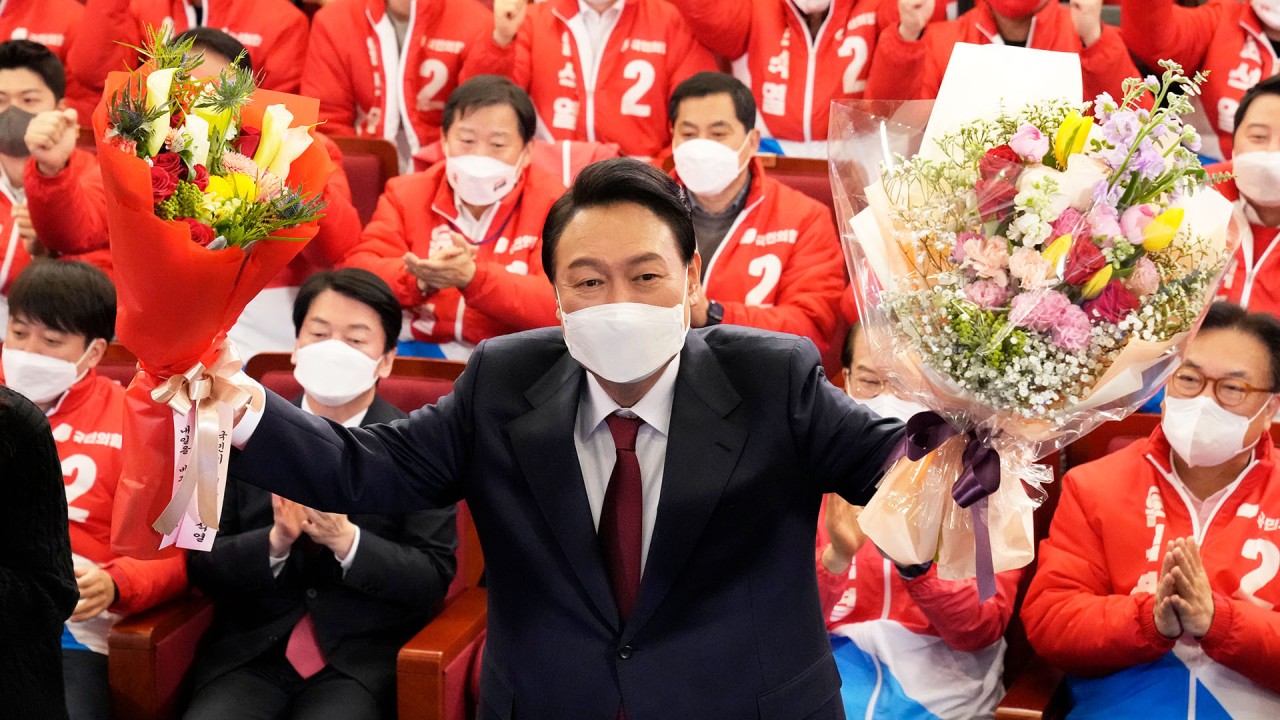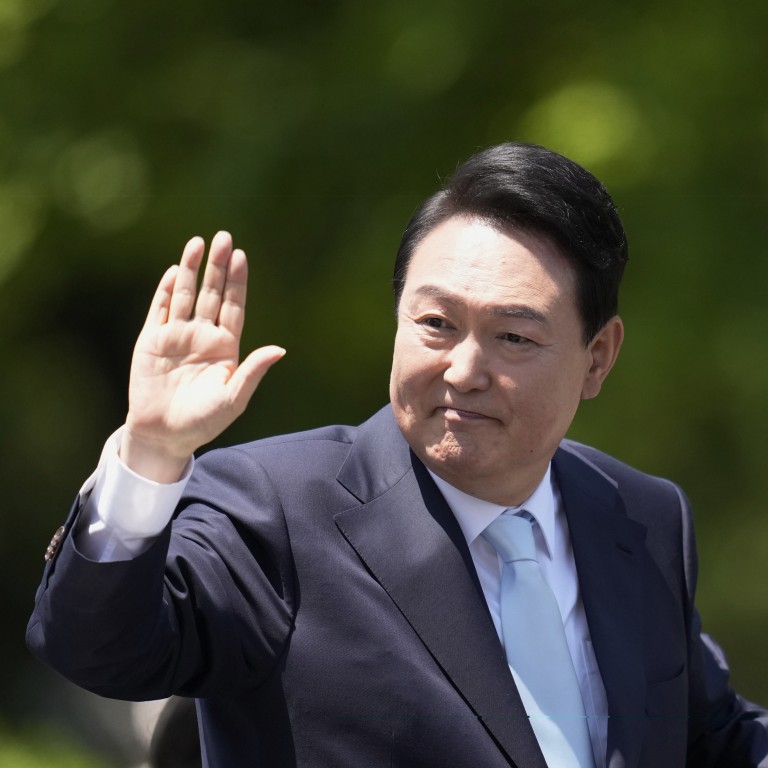
As South Korea’s Yoon Suk-yeol reaches out to Japan, hopes are high he’ll ‘change the tenor’ of ties
- A delegation representing Yoon, who’ll be sworn in on May 10, met Japanese PM Fumio Kishida in Tokyo on Tuesday
- Both sides want to improve ties that have deteriorated under Moon Jae-in, amid challenges including Ukraine and threats from China and North Korea
Yoon’s representatives, headed by Chung Jin-suk, deputy speaker of the national assembly, gave the Japanese leader a personal letter from the president-elect.
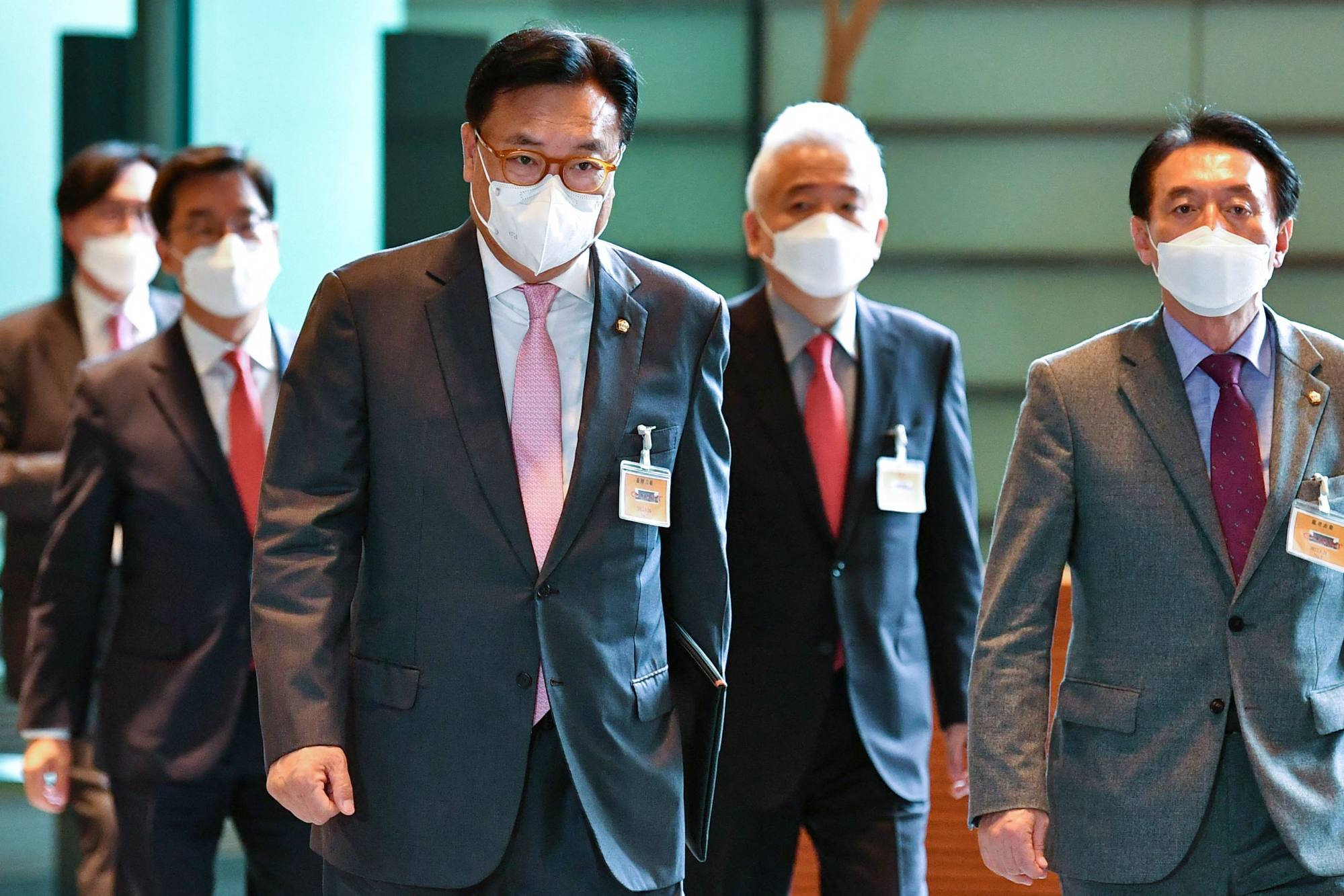
“This delegation, at the initiative of the incoming South Korean administration, is an emphatic indication that Yoon wants to change the tenor of the dynamics of Japan-Korea relations,” said Stephen Nagy, an associate professor of international relations at Tokyo’s International Christian University.
“There have already been comments about South Korea perhaps joining the Quad alliance in some way, for greater engagement and improved bilateral relations, and that is all positive,” he said.
“And perhaps the most surprising thing is that Yoon has done all this even before he has formally taken power in Seoul.”
“The feeling is that Moon’s government over-politicised the relationship with Japan,” he said.
“There are real issues between the two nations, but a convergence of factors now means that the Korean public is much more in favour of a more positive dynamic.”
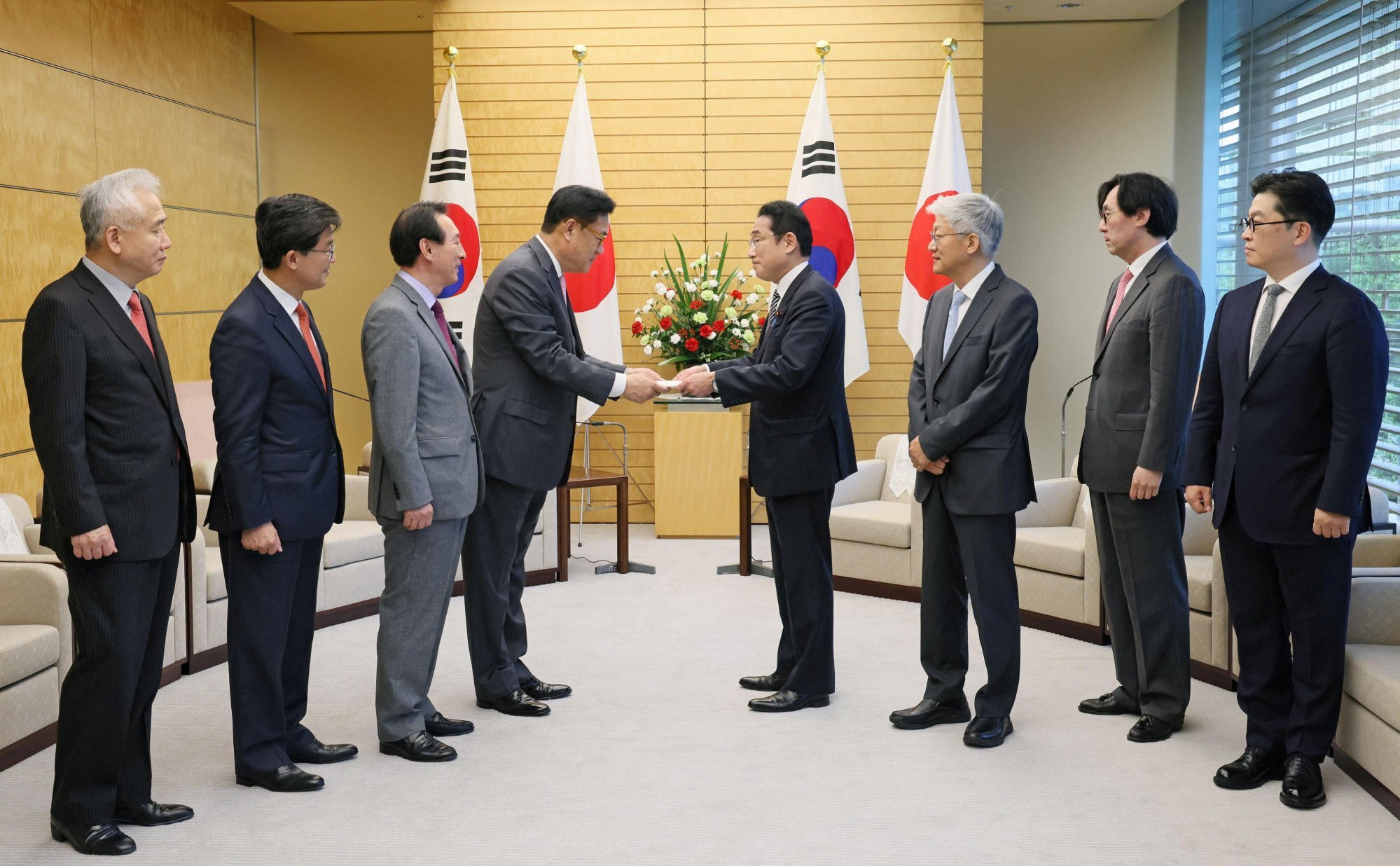
That hope is shared by South Korean companies, which traditionally enjoyed close ties with Japanese firms until Japan imposed restrictions on exports of chemicals critical to the South’s semiconductor industry.
Tokyo has denied the restrictions were a retaliatory move, but it is widely assumed they were a reaction to Seoul unilaterally withdrawing from a 2015 treaty and agreed compensation that both sides said would draw a final line under the issue of “comfort women” forced to work in brothels for the Japanese military before and during World War II.
New Zealand, Japan seek ‘free, open’ Indo-Pacific in veiled reference to Beijing
A recent survey of 327 domestic companies by the Korea Chamber of Commerce and Industry showed that more than half of the firms questioned anticipate increased trade and investment under Yoon’s administration.
Companies in the materials, parts and equipment sectors, which were hardest hit by Tokyo’s trade restrictions, are the most optimistic.
And while just 12.9 per cent of businesses expected bilateral relations to improve six months ago, that figure has now soared to 45.3 per cent.
Hiromi Murakami, a professor of political science at the Tokyo campus of Temple University, said the Japanese government had been “waiting patiently for a conservative government to return in Korea, and I think the sense now is that things can move forward again”.
“And that is really important in all areas – trade, tourism, security, the threat posed by North Korean missiles – and there is a need to cooperate and develop the relationship”.
Japan eyeing attack drones used by Ukraine as Russian threat rises
Despite the positive start to the new two-way relationship, Murakami warned that many obstacles remain.
“The initial approach from Yoon was very positive and I am sure has been welcomed in Tokyo, but there are still many issues that both sides have to find a way to agree on,” she said. “The South Korean side has said it wants to move on from the ‘comfort women’ issue, but that may not play well with a domestic audience.
“He has a very slim lead in parliament and he cannot simply ignore criticism on something like that,” she added. “He will need something from Japan in return for the two countries to move forward.”
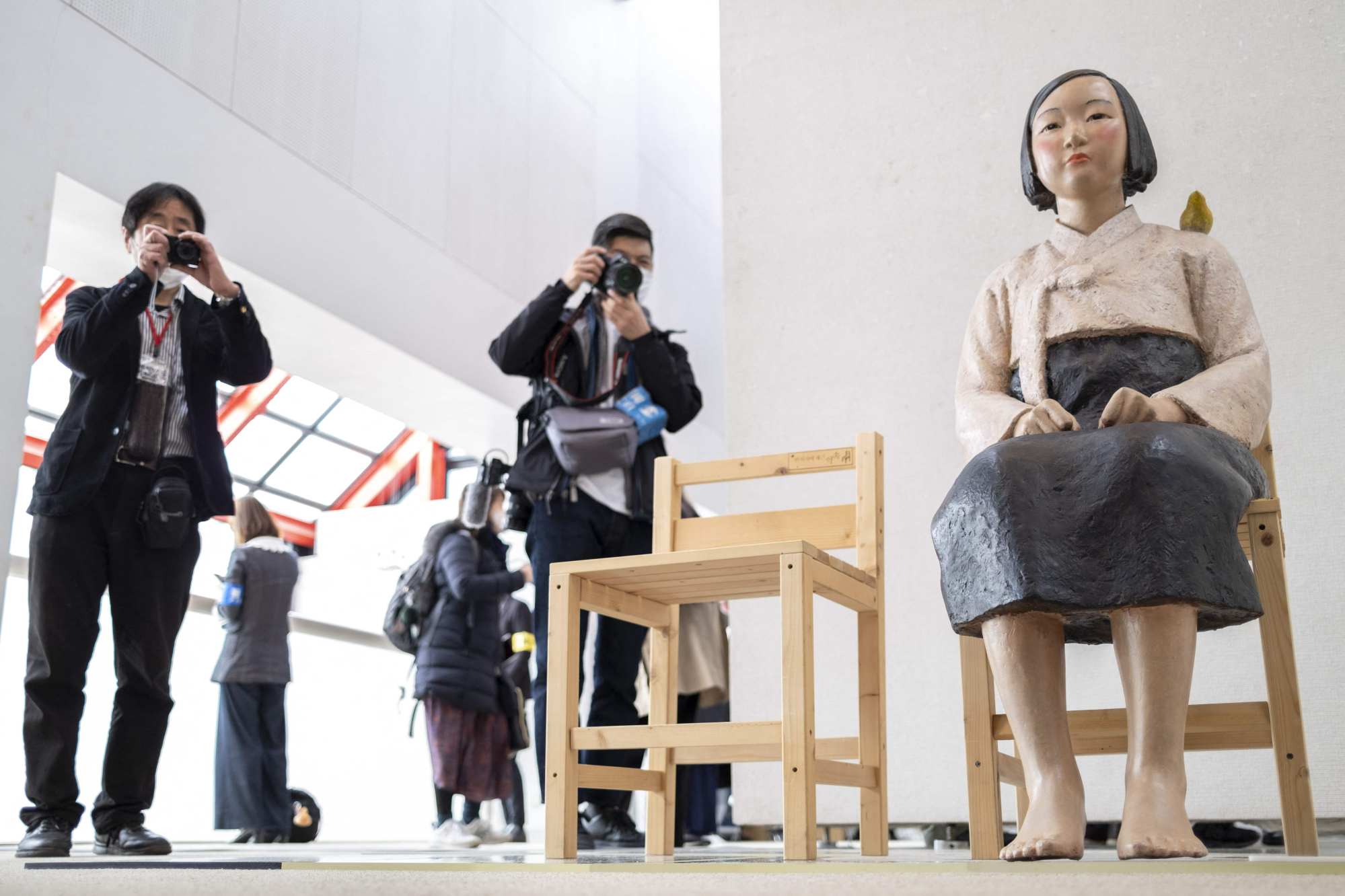
Nagy agreed that Yoon must tread very carefully in his dealings with Tokyo and cannot politically afford to give away too much, too quickly.
“He has a small majority so he cannot appear to be too pro-Japan in his engagement,” he said, pointing out that North Korea has already attempted to undermine the rapprochement efforts. Its state media has described Yoon’s delegation to Japan as “samurai” with Korean masks in a transparent move to increase the new South Korean leader’s problems at home.
“So while there are very good signs and Japan will see this approach positively, I also think there is a sense in Tokyo of ‘once bitten, twice shy’ when it comes to Seoul,” he said. “Tokyo is hoping to see sustained change from the Moon administration and to see if the two governments can build a sustained and broader dialogue on the issues facing the region.
“It takes two to dance and South Korea has taken the first step; the question is whether Japan will follow that lead and reciprocate,” he added. “We will see over the next six months or so.”


